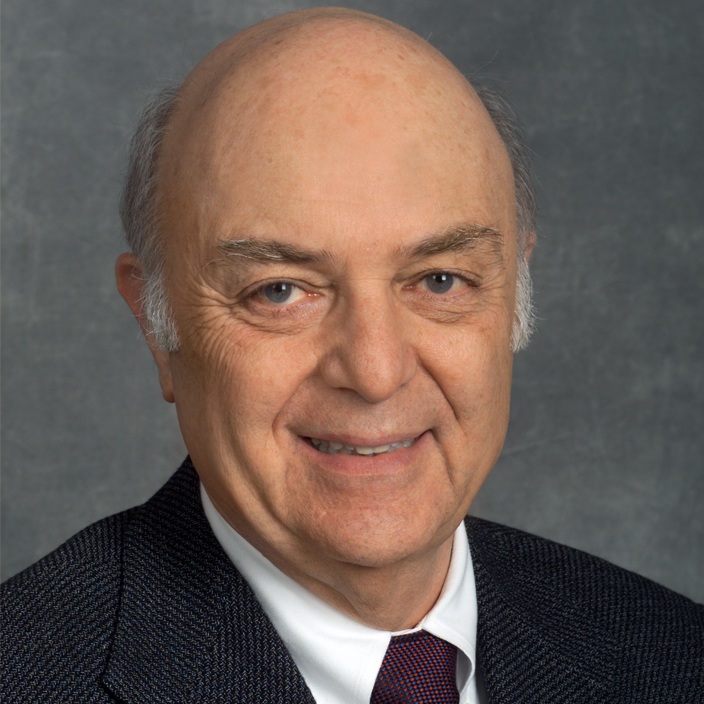
Physicist Marvin Cohen’s central role in the emergence and advancement of computational materials physics, as well as his mentorship of an outstanding new generation of scientists, make him largely responsible for the modern shape of theoretical materials physics. Widely recognized as an inspiring intellectual leader, Cohen’s contributions transformed computational materials physics from a study of simple, idealized model systems to a point at which detailed and realistic properties of real materials can be routinely obtained. Cohen pioneered the development of practical computational tools (pseudopotentials) that made fundamental studies of complex, real materials systems achievable. With the methods he developed, the properties of new materials—materials not previously realized in nature or in the laboratory—can be predicted and then found to be in agreement with later experiments.
Cohen was born in Montreal, Canada in 1935. His family moved to San Francisco while he was in secondary school. He earned his undergraduate degree from the University of California, Berkeley in 1957 and his Ph.D. from the University of Chicago in 1963. Cohen spent one year on the technical staff at Bell Telephone Laboratories before returning to UC Berkeley as an assistant professor of physics, where he quickly advanced to full professor. He has now spent more than 50 years teaching and conducting research at UC Berkeley, since 1995 as a University Professor, and at the Lawrence Berkeley National Laboratory. He is an author of some 850 scientific papers, typically coauthored only by a few junior collaborators.
When Cohen first started his theoretical investigations, it was generally unfashionable and even considered “mindless” to use a computer to calculate electronic properties. His groundbreaking 1966 paper, written with a student, T. K. Bergstresser, ushered in a new era in the theoretical study of solids. This paper is based on his development of the empirical pseudopotential method (EPM). Cohen used experimental data in combination with EPM to predict and understand electronic properties of a large number of solids—an important first.
For the next two decades, as computers became more powerful, he created even more sophisticated computational methods and programs to describe how the electrons in new materials interact. But Cohen’s transcendent contribution to the computational materials physics field is the “ab initio pseudopotential method,” used to calculate the total electronic energy of solids without any input from experiments.
In the new millennium, Cohen focused his research on nanomaterials. He discovered novel electronic properties in carbon nanoribbons and began to explore a new realm of physics defined by entirely new shapes of combinations of carbon atoms. Cohen showed that when an electrical field was applied to carbon nanoribbons, half of the electrons were metallic and half were insulating. Other researchers have since elaborated on Cohen’s results, creating a new field of study in electronics called “spintronics,” in which devices use the spin of the electrons to transfer information faster and with less energy. Cohen’s formative work identifying the dual character of electrons in carbon nanoribbons has already led to the incorporation of this property in future technologies. Manufacturers like Intel, Toshiba, and Samsung are developing spintronics to create a wide variety of faster and cheaper devices with better storage that require less power.
Cohen is a recipient of the National Medal of Science, the APS Oliver E. Buckley Prize for Solid State Physics, the Foresight Institute Richard P. Feynman Prize in Nanotechnology, and the Technology Pioneer Award from the World Economic Forum, to name just a few. He has received honorary degrees from the University of Montreal, the Hong Kong University of Science and Technology, and the Weizmann Institute of Science. In a recent survey, he was ranked as the second most cited physicist in the world. In 2016 Cohen was a recipient of the Thomson Reuters “Web of Science” Citation Award. The award identifies candidates who have written many high-impact research papers with high citation counts and places him among the world’s most influential scientists.
Along with his monumental theoretical accomplishments, paramount in Cohen’s career is his work mentoring a large number of graduate and post-doctoral students, many of whom now occupy prominent positions in leading universities in the U.S. and across the globe. Added to these achievements is the active role he has taken in the promotion of science to government and to the general public, making Marvin Cohen one of the most impactful and prolific physicists today.
Information as of April 1, 2017

